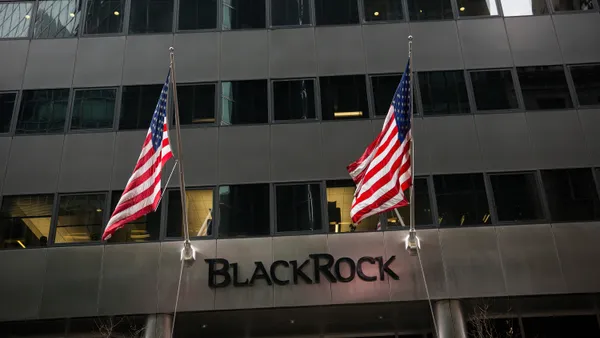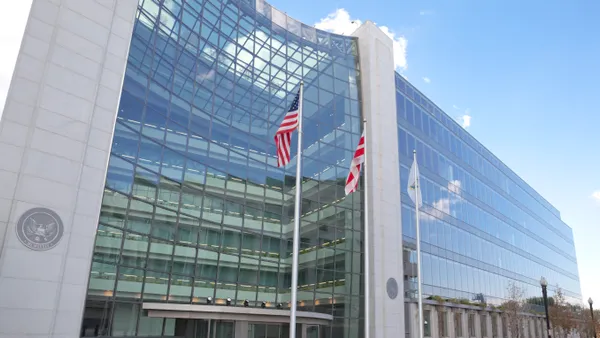Dive Brief:
- The Oklahoma Public Employees Retirement System extended investment contracts with BlackRock and State Street at its May board meeting last week, OPERS Executive Director Joseph Fox told ESG Dive.
- Fox said both contracts were extended on May 16, shortly after a judge blocked the state’s anti-ESG law that restricts the state from doing business with firms that don’t invest in oil and gas for environmental reasons. Both firms are listed on the restricted list of Oklahoma’s 2022 Energy Discrimination Elimination Act.
- Between OPERS and Oklahoma’s Uniform Retirement System for Justices and Judges, assets in the two funds managed by BlackRock total $7.3 billion while assets managed by State Street total $808 million, Fox said in an email to ESG Dive.
Dive Insight:
BlackRock and State Street’s contracts were set to expire June 30 without action, but Fox said the firms’ status on the state’s restricted list led the renewals to be excluded from the April board meeting when the rest of OPERS’ investment contracts were renewed.
OPERS has a total investment portfolio of $11.7 billion, according to its 2023 financial report, while URSJJ’s investment portfolio is worth just under $400 million, according to its 2023 report.
Oklahoma District Court Judge Sheila Stinson issued a temporary injunction on the rule May 7, and found the law’s goal of countering financial institutions’ political agendas — as State Treasurer Todd Russ has contended — diverts public pension funds and retirement systems from their “constitutionally stated purpose.” The ruling was borne from a lawsuit a retired state employee filed in November that argued the law was unconstitutional.
Prior to Stinson’s ruling, the Oklahoma Rural Association had started to raise the red flag on the unintended consequences the EDEA was having on the municipalities in the state. ORA found last month that the law is having “deeply adverse effects” on the state’s rural communities and increasing borrowing costs for municipalities.
ORA said the 2022 law has forced the state to spend an additional $185 million in borrowing costs and increased municipality borrowing costs 15.7%. Republicans in the state legislature have weighed amendments to the law that would carve out municipalities from restrictions and allow state entities to receive exceptions to required divestments.
BlackRock and State Street were among the initial tranche of financial institutions banned from working with the state last May, along with JPMorgan Chase, Bank of America, Wells Fargo and eight others. The Sooner State added British bank Barclays to the restricted list earlier this month.












